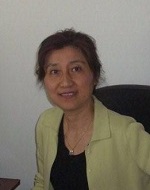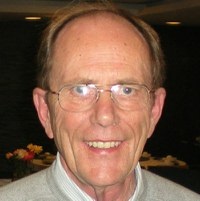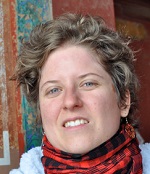|
Every other year, a Southern Cone TESOL
affiliate hosts a regional conference. Southern Cone TESOL
affiliates include Brazil, Chile, Uruguay, Paraguay, and Argentina.
A little history on these conferences takes us back to 1994,
at the TESOL convention in Baltimore, Maryland, USA, when it was agreed
that Caribbean affiliates would meet every 2 years (those years ending
in even numbers) and that the Southern Cone affiliates would meet every
other year. On that occasion, Uruguay TESOL, UruTESOL, was selected as
the venue for the First Regional Southern Cone Conference to be held in
1995. During this first conference, Paraguay TESOL, PARATESOL, was
chosen for 1997 and at this second conference Buenos Aires, Argentina,
was elected as the site of the third conference. This Third TESOL
Southern Cone Conference, “Mapping
Out Our Future,” took place in August 1999. The plenary
sessions in this event were conducted by JoAnn Crandall and Kathleen
Bailey. Then, at a meeting in Curitiba, Brazil, the Curitiba Chapter of
BRAZTESOL was unanimously elected for the fourth regional Southern Cone
TESOL conference.
Regional Southern Cone conferences continued to take place
in the countries of the region. In 2003, the event was held in
Montevideo, Uruguay, and in 2005 in Paraguay. In July 2007, ARTESOL
hosted the TESOL Symposium on Teaching English for Specific Purposes
and, following the symposium, the Seventh Southern Cone TESOL
Convention. Both events took place in Buenos Aires. Then, in September
2009, the Southern Cone TESOL Conference, “Critical Teaching for
Critical Times,” was held in Santiago, Chile; in July 2011, Curitiba, Brazil was selected as the venue for the Ninth Southern Cone TESOL Conference; and in April 2013, the 10th Southern Cone TESOL
Conference took place in Uruguay.
This year in May, Argentina TESOL hosted the XI Southern Cone TESOL Conference, “Winds of Change in
ELT,” in Buenos Aires. TESOL International
Association was represented by Dr. Yilin Sun, immediate
past president. She was the keynote speaker for the conference.
Two Southern Cone affiliates were represented by their
presidents, Chile TESOL by Mary Jane Abrahams, and
UruTESOL by Gabriel Lanzaro.
The conference featured prominent keynote
speakers who conducted plenary and semiplenary
sessions.
The opening keynote address was given by Dr. Yilin Sun. This
plenary session, “Winds of Change in
ELT: Strategies, Issues and Responsibilities of ELT Professionals in the
21st Century Classroom,” gave direction to the conference. It
focused on strategies to empower teachers and students in the
21st-century classroom. Dr. Sun talked about recent major trends in the
ELT field and teaching and learning strategies for
nonnative-English-speaking (NNES) professionals. She also discussed NNES
educators’ roles and responsibilities in the changing global society.
In her second plenary presentation, Dr. Sun conducted an interactive
plenary workshop, “Developing Speaking Skills through Story Reading and
Questioning Techniques,” focusing on strategies and activities to help
students develop oral skills through story reading and sharing effective
questioning techniques to facilitate learners’ critical thinking as
part of the language proficiency development.

Dr. Yilin Sun, Keynote Speaker
There were two special guests for the conference who
conducted plenary sessions, Dr. Robert Bayley, Chair Graduate Group in
Linguistics, Fulbright Commission Argentina, and Mathilde Verillaud,
English Language Fellow, U.S. Department of State and the U.S.
Embassy.
In his session, “Developing
Culturally and Linguistically Responsive Pedagogy: Insights from
Sociolinguistics,” Dr. Bayley
skilfully described how insights from sociolinguistics may contribute to
pedagogy in three areas: 1) understanding the nature of the target
language, 2) developing a view of L2 speakers as language users rather
than as perpetual learners, and 3) creating more accurate assessments of
student proficiencies across a range of contexts.

Dr. Robert Bayley, Guest Speaker
Mathilde Verillaud, who presented “Make It Pop!
(Culture),” provided an overview
on how students of English are all exposed to popular culture in English
on a daily basis. The presentation aimed at understanding why it is
essential to teach culture in the EFL classroom, and how pop culture is a
great tool to do just that. With professional experience, the presenter
clearly explained practical ideas and examples where still images,
moving images, and music can motivate students to communicate in
English. She also focused on how, while learning the target culture,
students can reflect on their own.

Mathilde Verillaud, Guest speaker
Three highlighted
sessions were organized to take place simultaneously on the
second day of the convention. They were conducted by three prestigious
teachers and researchers, Dr. Marge Tye Zuba; María Susana González, MA;
and Susan Strand, MA.
In her presentation, “How Do OUR
Learning Preferences Impact Our Lesson
Planning?”, Marge Tye
Zuba clearly discussed how teacher
preferences affect lesson planning, teaching, and motivation. She
provided participants a concrete, hands-on opportunity to look at their
learning preferences.
María Susana González presented a detailed
description of the development of an authentic academic
texts reading model belonging to the social sciences in her session,
“A
Reading Comprehension Model of Academic Texts.”
She succinctly explained how the model can help students
who have a basic knowledge of English overcome the difficulties they
encounter in their reading process when they read complete research
articles.
Susan Strand’s address focused on a strategy for engaging
students through inquiry-based learning (IBL): a learner-centered
approach that fosters learning though investigation, in “English language
learners through Inquiry-Based Learning (IBL).” She illustrated the IBL cycle and led participants
through an IBL activity.
As for the academic sessions, there were 52 concurrent
presentations in four different categories: papers,
demonstrations, workshops, and poster sessions. These academic
presentations were conducted by classroom practitioners and
classroom-centered researchers specialized in all educational levels who
shared their expertise with more than 200 EFL professionals from all
over Argentina, and with visitors from Chile, Uruguay, the United
States, Colombia, Bolivia, Paraguay, Venezuela, and Brazil.
ARTESOL convention organizers are thankful to presenters as
well as to attendees for making this convention possible. Many comments
on ARTESOL 2015 - XI Southern Cone TESOL Convention expressed by
attendees proved this 2-day academic event to be a great success.
Ana María Rocca, Argentina
TESOL vice president, is an ESP and EFL
teacher and researcher at the School of Philosophy and Letters and
Extension Secretary, Universidad de Buenos Aires.
|

